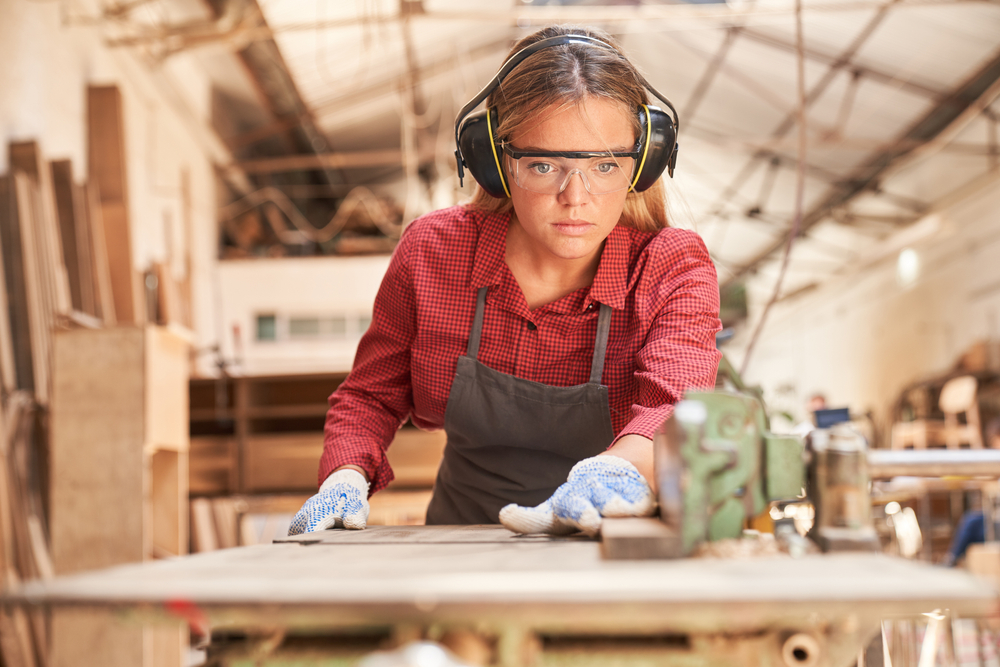
Whether you’re attending concerts, working, or doing some yard work, hearing protection is crucial in keeping your ears safe against damaging noise levels. However, a number of factors can hinder the effectiveness of your hearing protection, leaving you exposed to potential risks. In order to understand and effectively maximize the benefits of your ear protection, it’s essential to understand these issues.
Why hearing protection falters: common scenarios
Even when you observe best practices, unexpected difficulties can happen. You wear your earmuffs faithfully at work, use earplugs at concerts, and avoid noisy situations whenever possible. However, the efficiency of your hearing protection can be reduced by specific variables. Luckily, you can ensure the protection of your hearing by becoming aware of these common issues and making informed adjustments.
1. Selecting the wrong hearing protection for the situation
Hearing protection isn’t one-size-fits-all, and picking the wrong type for a given environment can reduce its effectiveness.
There are generally two main categories of hearing protection:
- Earmuffs: Bigger, headphone-like device that goes over the entire ear.
- Earplugs: Small, flexible inserts that fit snugly inside the ear canal.
There is an ideal type for each situation:
- Earmuffs are better for settings with periodic noise, like a construction site where machinery starts and stops frequently.
- Earplugs are suitable for settings with continual noise levels, like factory floors or airplane cabins.
If you’re in a quiet setting and need to temporarily remove your hearing protection, earmuffs are easier to deal with. However, earplugs, especially disposable ones, can be easily lost, leaving you unprotected when noise levels rise again. Picking the correct hearing protection for your needs is the first step toward safeguarding your hearing effectively.
2. Fit and function are affected by anatomy
Everybody’s ears are unique, meaning that not all hearing protection devices will fit everyone equally well. Standard earplugs and earmuffs are often designed for average dimensions, but your ear anatomy may require a more personalized solution.
- Smaller ear canals: If you have narrow ear canals, standard-sized earplugs might not create a proper seal, reducing their noise-blocking capabilities.
- Larger ear structures: Earmuffs might be uncomfortable if your ears are larger than average creating gaps in the seal.
If your hearing protection doesn’t fit correctly, you could become discouraged and decide to quit using them altogether which can imperil your hearing. Consider opting for custom-fitted earplugs or professionally fitted earmuffs if you spend a great deal of time in loud settings. Choosing to go with a more personalized approach will provide you with increased comfort and effectiveness, keeping your hearing safe in any situation.
3. Disregarding routine upkeep and replacement
Like any piece of equipment, hearing protection devices require upkeep to continue to be effective. Wear and tear, incorrect cleaning, and disregarding replacement schedules can all jeopardize their ability to protect your ears.
The following are a few tips on how to maintain hearing protection:
- Replace Cushions: The flexibility of earmuff cushions can diminish over time. In order to maintain a tight seal, replace the cushions when needed.
- Clean Properly: Debris and earwax can accumulate on your hearing protection over time. Wash them regularly using manufacturer-recommended methods to ensure cleanliness without damaging the material.
- Check for Damage: Regularly inspect the elastic band on earmuffs. Their ability to efficiently block noise can be jeopardized if the elastic band is loose or stretched.
Your hearing protection will be less effective and possibly useless if you disregard these simple maintenance tasks. Regular maintenance is essential to extend their lifespan and ensure reliable performance.
What is the role of a hearing specialist?
If you’re uncertain whether your hearing protection is getting the job done, schedule a consultation appointment with us. We can check your present devices, suggest alternatives, and even provide custom solutions tailored to your specific requirements.
Safeguarding your hearing is a lifelong commitment, and it’s worth the effort to make sure you’re using the best tools for the job. You can safeguard and preserve your hearing for many years by managing these common challenges.
